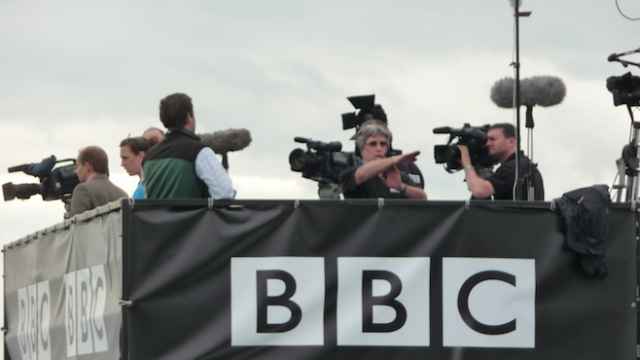The Russian Union of Journalists has suggested obligating journalists planning to work in conflict zones to submit genetic profiles in case they are killed while reporting.
"A journalist who has not gone through genetic testing should not be allowed to go there [to a conflict zone.] … The thing is, huge sums [of money] are spent on identifying the bodies. We're talking about human life, about the fact that the person's close ones shouldn't suffer. In that sense, it's vital to make genetic profiles a requirement," Rafael Guseinov, secretary for the Russian Union of Journalists, was cited as saying by RIA Novosti.
Guseinov's statements came as the State Duma began examining a bill submitted in the spring that would require employers sending journalists to conflict zones to provide them with additional health and life insurance, safety equipment and proper training.
Calls for more precautions to be taken for journalists working in conflict zones came after several Russian reporters were killed while reporting from war-torn eastern Ukraine over the summer.
In June, Igor Kornelyuk and Anton Voloshin, two correspondents for state-run television broadcaster VGTRK, were killed near Luhansk when the area was shelled during fighting between pro-Russian rebels and the Ukrainian military.
Channel One cameraman Anatoly Klyan was also killed that month while reporting on events in Ukraine. Most recently, in late August, Rossiya Segodnya correspondent Andrei Stenin was killed in the line of duty.
"If Andrei Stenin had undergone genomic registration, then as soon as his body was discovered they would have taken biological material, sent it for testing, compared it with his genomic profile and very quickly received definite information [that it was him]," Mikhail Fedotov, head of the Kremlin's human rights council, said in comments to Kommersant FM radio station on Thursday.
A Message from The Moscow Times:
Dear readers,
We are facing unprecedented challenges. Russia's Prosecutor General's Office has designated The Moscow Times as an "undesirable" organization, criminalizing our work and putting our staff at risk of prosecution. This follows our earlier unjust labeling as a "foreign agent."
These actions are direct attempts to silence independent journalism in Russia. The authorities claim our work "discredits the decisions of the Russian leadership." We see things differently: we strive to provide accurate, unbiased reporting on Russia.
We, the journalists of The Moscow Times, refuse to be silenced. But to continue our work, we need your help.
Your support, no matter how small, makes a world of difference. If you can, please support us monthly starting from just $2. It's quick to set up, and every contribution makes a significant impact.
By supporting The Moscow Times, you're defending open, independent journalism in the face of repression. Thank you for standing with us.
Remind me later.





